| Ligne 88 : | Ligne 88 : | ||
}} | }} | ||
{{ {{tntn|Tuto Step}} | {{ {{tntn|Tuto Step}} | ||
| − | |Step_Picture_00= | + | |Step_Picture_00=People_pedal_powered_computer_charger_Screenshot-2017-11-16_8A_DC-DC_BUCK_CONVERTER_STEP_DOWN_8-40V_TO_1_25-36V_WITH_CURRENT_CONTROL_XL4016_eBay.png |
| + | |Step_Picture_01=People_pedal_powered_computer_charger_F0405590-01.jpg | ||
| + | |Step_Title=Conversion : messy DC power to flat DC voltage | ||
| + | |Step_Content=The power that will be generated is a messy DC voltage. We want to flatten this out to the charging voltage of your computer. | ||
| + | |||
| + | Material : | ||
| + | |||
| + | - DC/DC converter | ||
| + | |||
| + | Input : min computer voltage (20V) to min 40V | ||
| + | |||
| + | Output : min computer voltage (20V) | ||
| + | |||
| + | Current : min computer current (4.5V) | ||
| + | |||
| + | https://www.benl.ebay.be/itm/8A-DC-DC-BUCK-CONVERTER-STEP-DOWN-8-40V-TO-1-25-36V-WITH-CURRENT-CONTROL-XL4016-/181653531755? | ||
| + | |||
| + | Instructions : | ||
| + | |||
| + | - solder the converter into the circuit. | ||
| + | |||
| + | Screw the output to a pair of cables that is convenient for you, say 1m of 1.5mm2. Solder/screw the same female plug as above to the other end of the cable. This is the point where you can connect your computer plug. | ||
| + | |||
| + | Screw the input to a pair of cables, again 1m of 1.5mm2. This is the point where the display will be connected. | ||
| + | }} | ||
| + | {{ {{tntn|Tuto Step}} | ||
| + | |Step_Picture_00=People_pedal_powered_computer_charger_0019Pecha_Kucha_V_lo_M_.jpg | ||
|Step_Picture_01=People_pedal_powered_computer_charger_s-l500.jpg | |Step_Picture_01=People_pedal_powered_computer_charger_s-l500.jpg | ||
|Step_Title=Energy monitoring | |Step_Title=Energy monitoring | ||
| − | |Step_Content=We will be monitoring the power and energy production of the device. | + | |Step_Content=We will be monitoring the power and energy production of the device. |
| + | |||
| + | Material : | ||
| + | |||
| + | - power display | ||
| + | |||
| + | https://www.benl.ebay.be/itm/SIMPLE-DC-POWER-ANALYSER-WATT-VOLT-AMP-METER-12V-24V-SOLAR-WIND-ANALYZER-AMMETER-/171527746839? | ||
| − | + | Instructions : | |
| − | + | - connect the | |
- don't overcharge your computer. | - don't overcharge your computer. | ||
| − | When you are approaching 100% charge you should be extremely careful to not put too much power. The current must AT ALL TIMES stay lower than the current indicated on your adapter. | + | When you are approaching 100% charge you should be extremely careful to not put too much power. The current must AT ALL TIMES stay lower than the current indicated on your adapter. |
- don't blow up the converter. | - don't blow up the converter. | ||
Again when you approach full charge be careful to not put too much power. The voltage should AT ALL TIMES stay lower than the 40V that is indicated on the converter. | Again when you approach full charge be careful to not put too much power. The voltage should AT ALL TIMES stay lower than the 40V that is indicated on the converter. | ||
| − | |||
| − | |||
| − | |||
| − | |||
| − | |||
}} | }} | ||
{{ {{tntn|Tuto Step}} | {{ {{tntn|Tuto Step}} | ||
Version du 17 novembre 2017 à 19:32
Sommaire
- 1 Introduction
- 2 Étape 1 - People Pedal Power
- 3 Étape 2 - Overview
- 4 Étape 3 - Charging : adapting to the computer voltage
- 5 Étape 4 - Conversion : messy DC power to flat DC voltage
- 6 Étape 5 - Energy monitoring
- 7 Étape 6 - Generator : mechanical to electric energy
- 8 Étape 7 - Roller : slow- to fast-rotation mechanical energy
- 9 Étape 8 - Bicycle stand : dynamic energy to static energy
- 10 Étape 9 - Bicycle : human energy to mechanical energy
- 11 Commentaires
Introduction
The project Vélo M2 plays with PPP (people pedal power) applications. In Brussels we're having PPP open-air cinéma projections, PPP mobile fablab workshops and PPP music scenes and DJ sets. [www.velom2.be www.velom2.be]
This projects takes people pedal power to a smaller scale, where we will be charging a computer. In order to demonstrate the accessibility, we're construction the device in a remote town in Sweden, Torsby.Étape 1 - People Pedal Power
People pedal power is a form of renewable energy. One human can produce around 75W electric power sustained for about 15min, or 50W during a longer period. This is enough power to be able to charge an average laptop. This energy can be harvested on a PPP device.
To find out more about People Pedal Power, visit our site https://ciklic.wordpress.com/2017/08/05/renewable-energy-what-can-you-expect/
Étape 2 - Overview
The PPP charging device gives an alternative for charging your computer. You will be pedaling on your ordinary bicycle while on a bike stand. The bike stand has a generator that is turned by the bicycle wheel by a roller. The power coming from the generator is converted to the DC voltage your computer needs to charge. We are adding a display in between to monitor the production.
Étape 3 - Charging : adapting to the computer voltage
The aim of the people pedal power is to charge a computer. A computer battery is normally charges by an adapter that converts AC mains power to DC power. This charger will be only for YOUR computer.
Material :
- touch-safe connectors with locking
female http://se.rs-online.com/web/p/xlr-connectors/0405590/
male http://se.rs-online.com/web/p/xlr-connectors/0405607/
Instructions :
- we want to charge with the same power as the adapter does.
Check the voltage and the current at which the adapter charges your computer. Mine charges at 20V and 4.5A.
- you will be cutting your power cable.
The PPP device will charge your computer in stead of the adapter. Cut the cable in between the adapter and the computer plug. Solder/screw the new plugs to the cut wires, female tot the adapter side, male to the computer plug side.
You can also chose to buy a new computer plug separately and assemble a new cable for the PPP device.
Étape 4 - Conversion : messy DC power to flat DC voltage
The power that will be generated is a messy DC voltage. We want to flatten this out to the charging voltage of your computer.
Material :
- DC/DC converter
Input : min computer voltage (20V) to min 40V
Output : min computer voltage (20V)
Current : min computer current (4.5V)
Instructions :
- solder the converter into the circuit.
Screw the output to a pair of cables that is convenient for you, say 1m of 1.5mm2. Solder/screw the same female plug as above to the other end of the cable. This is the point where you can connect your computer plug.
Screw the input to a pair of cables, again 1m of 1.5mm2. This is the point where the display will be connected.
Étape 5 - Energy monitoring
We will be monitoring the power and energy production of the device.
Material :
- power display
Instructions :
- connect the
- don't overcharge your computer.
When you are approaching 100% charge you should be extremely careful to not put too much power. The current must AT ALL TIMES stay lower than the current indicated on your adapter.
- don't blow up the converter.
Again when you approach full charge be careful to not put too much power. The voltage should AT ALL TIMES stay lower than the 40V that is indicated on the converter.
Étape 7 - Roller : slow- to fast-rotation mechanical energy
The second etape is converting the slow-turning mechanical energy of the bicycle wheel to a fast-turning mechanical energy. Electric generators like high speeds.
Étape 9 - Bicycle : human energy to mechanical energy
The fist etape is the conversion of the human energy to slow-rotating mechanical energy. We are using an ordinary bicycle to harvest the energy.
Think about this :
- your bike should have low-profile tires
When the profile is too important (see picture) there will be a large energy loss due to vibrations. You will also have more noise when pedaling.
- the fixation of the axis should be not of the fast-release type
The fast-release-type with flat end (se picture) is often not compatible with the bike stands. You can easily change the axle with another (second hand) axle.
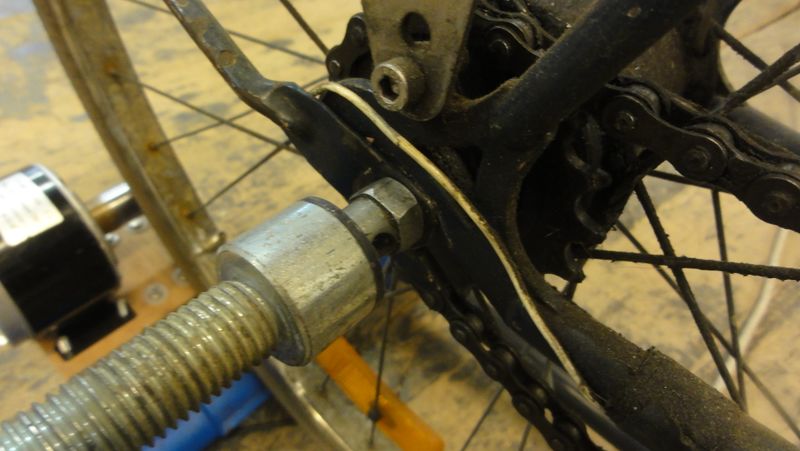
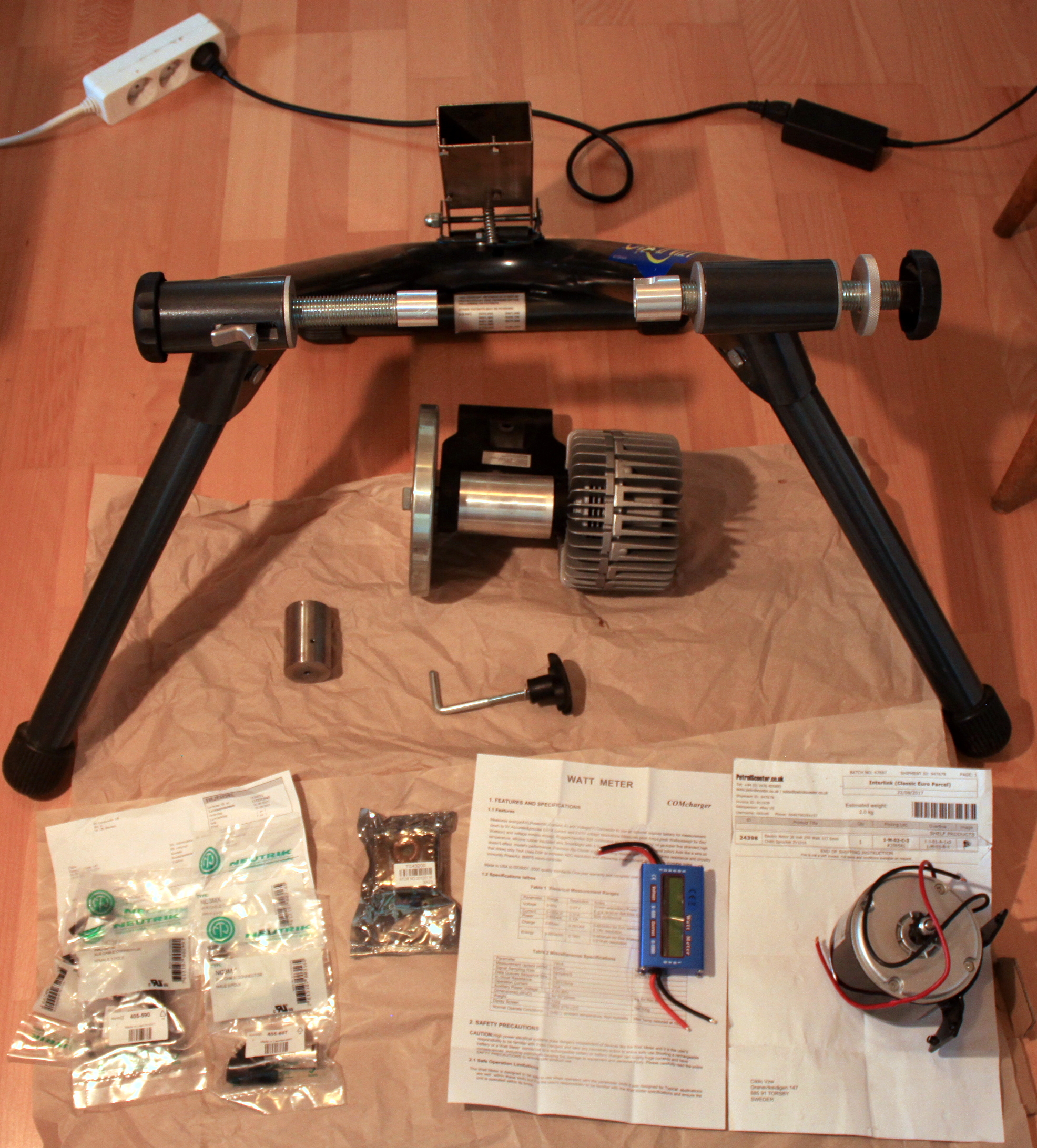
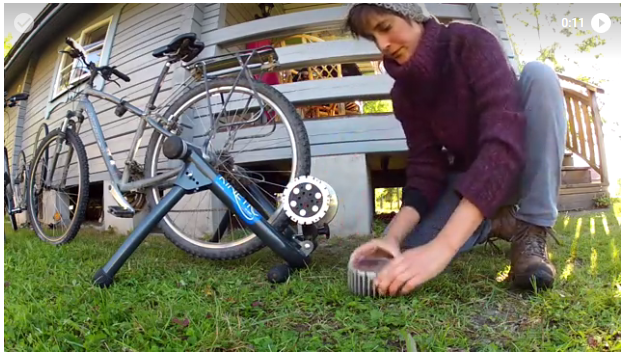
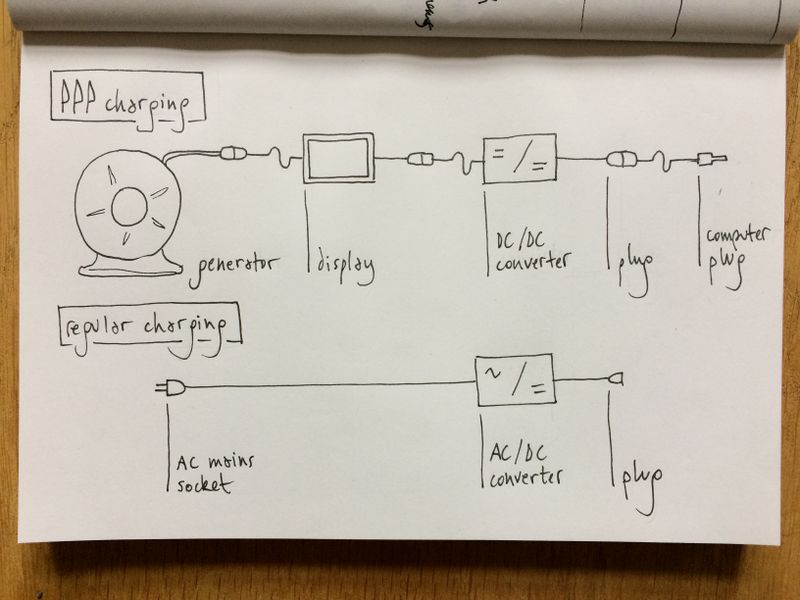
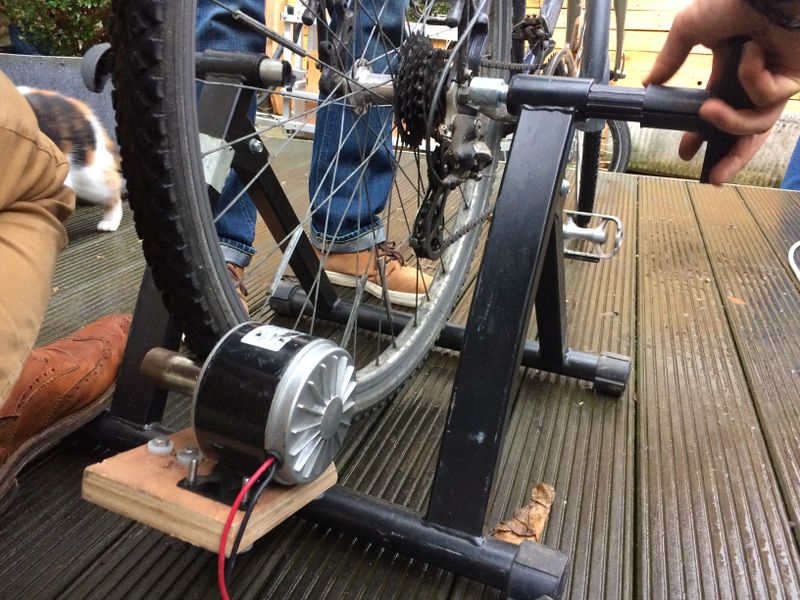
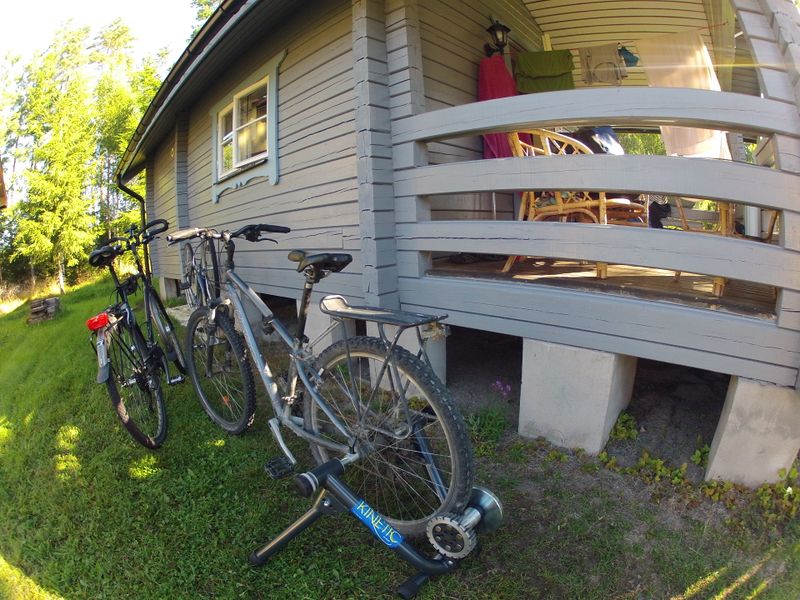
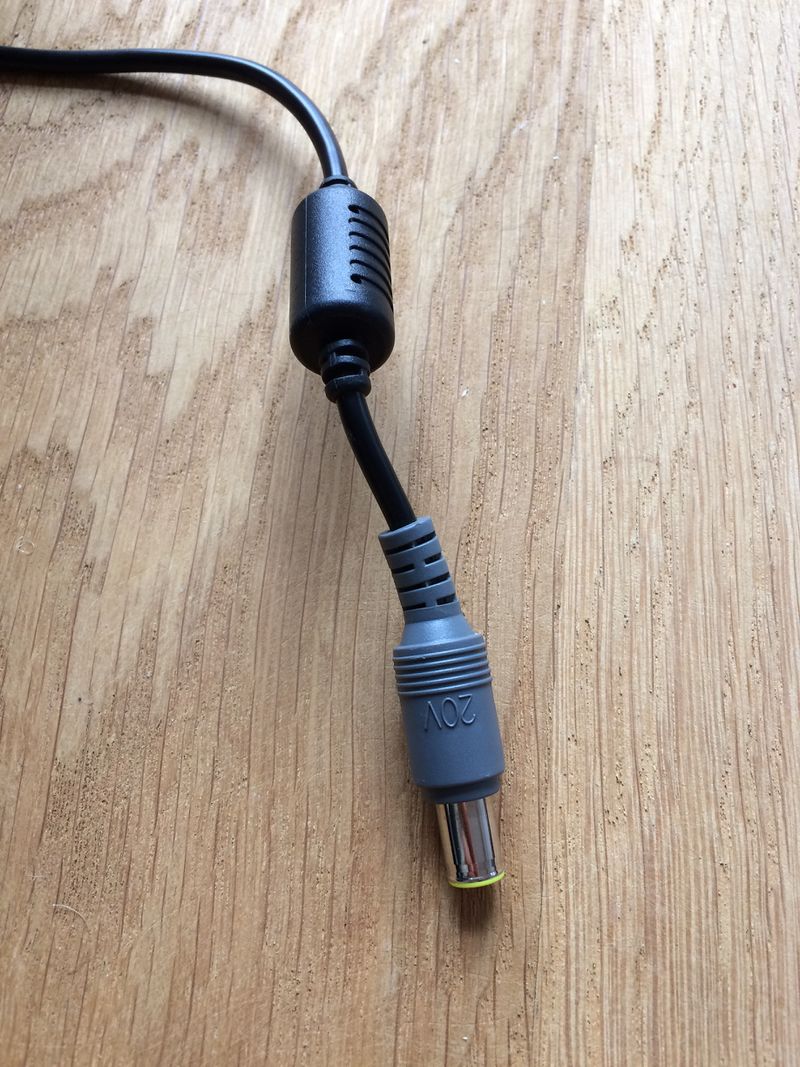
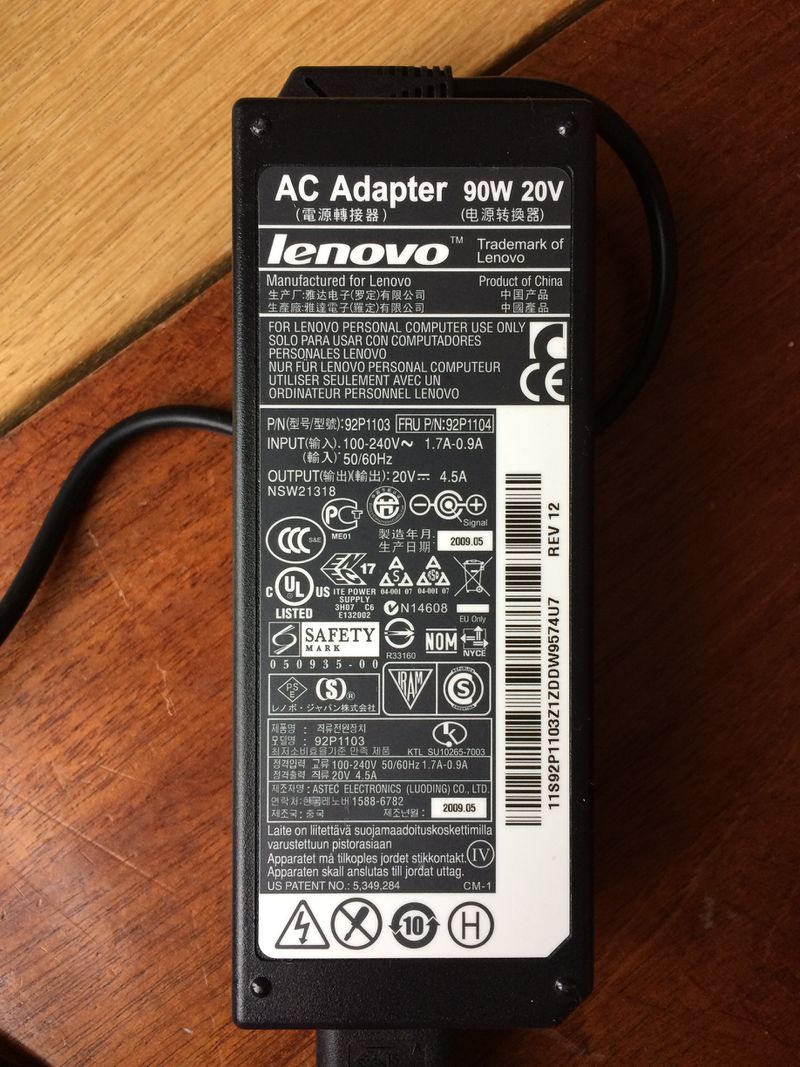
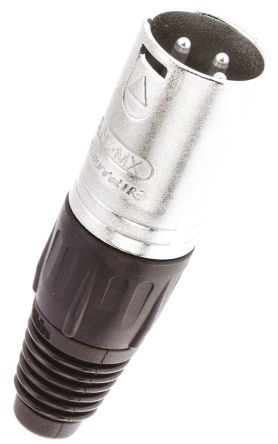
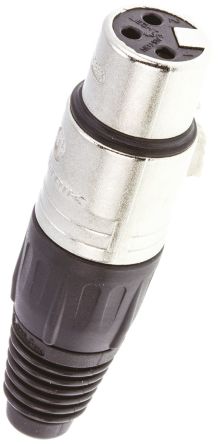
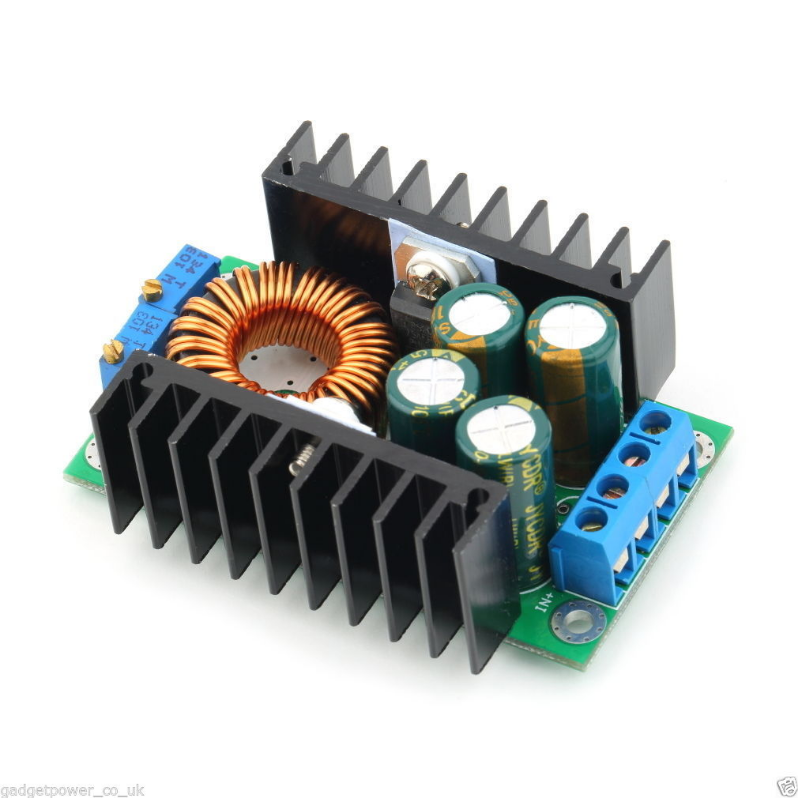
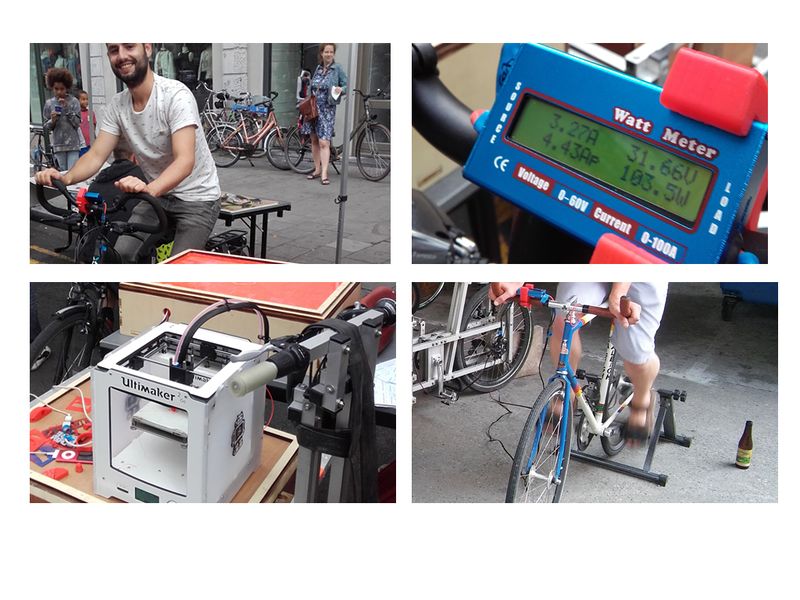
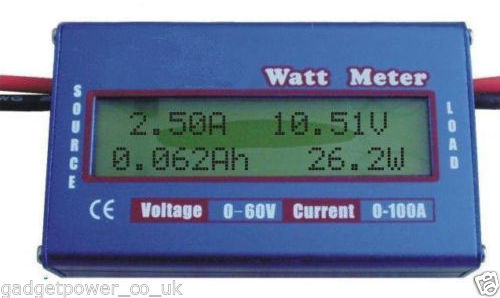
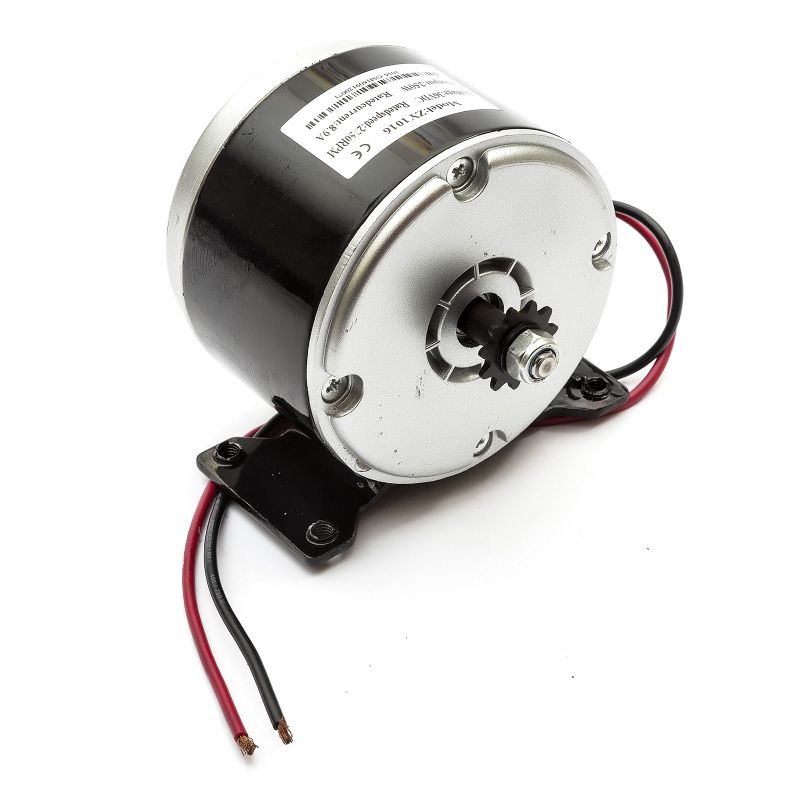
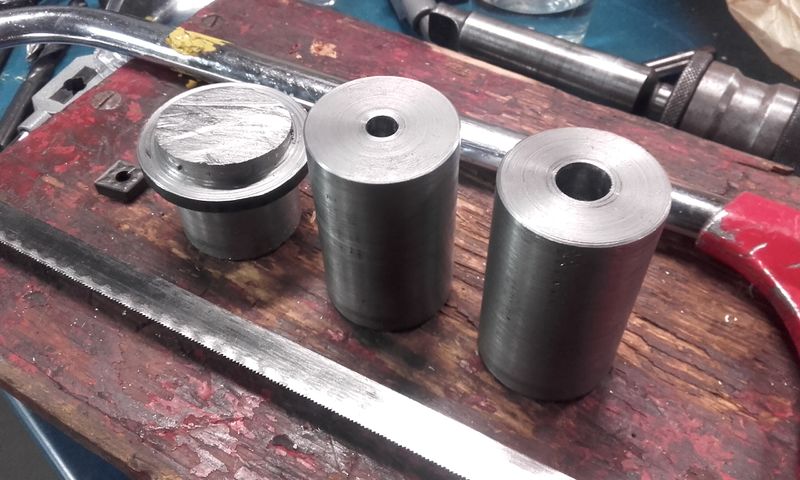
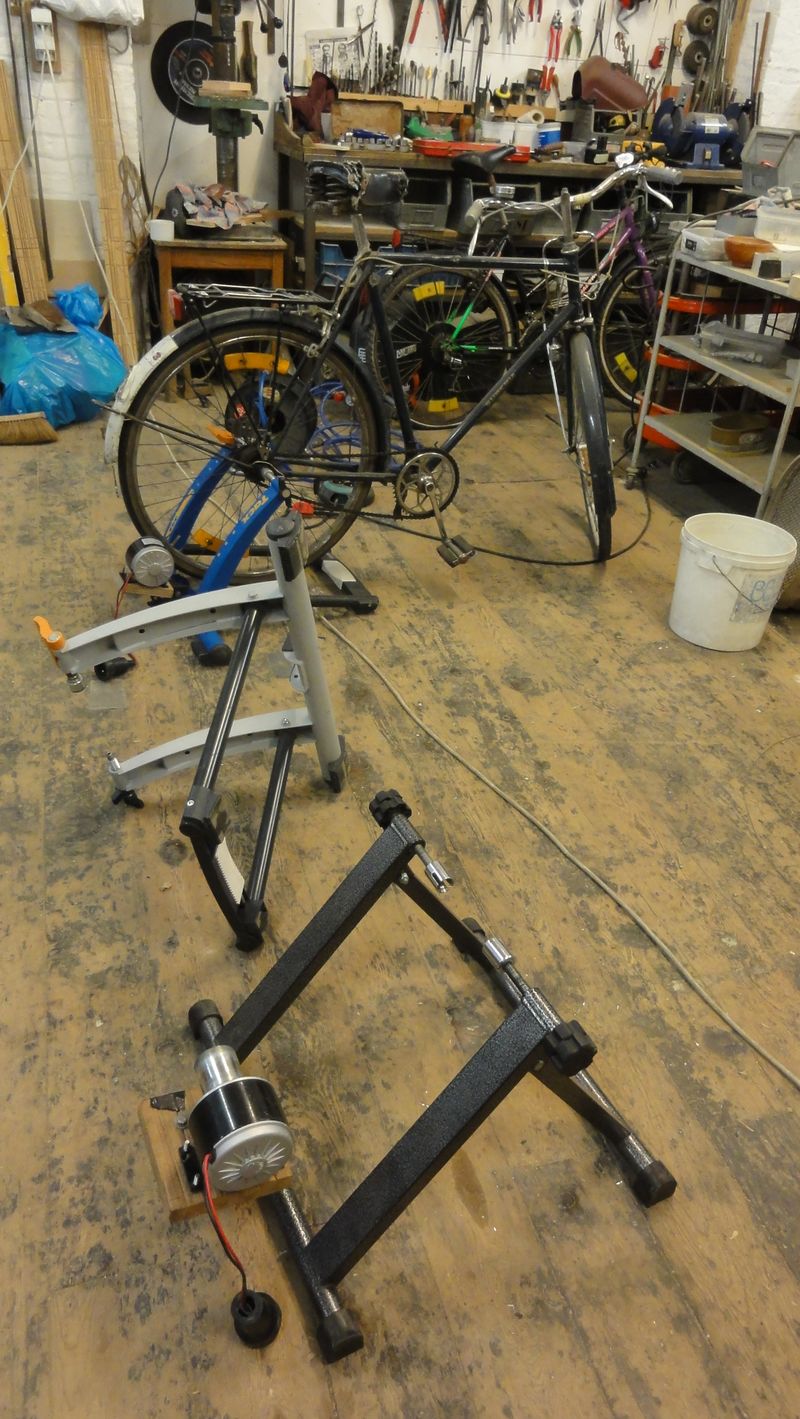
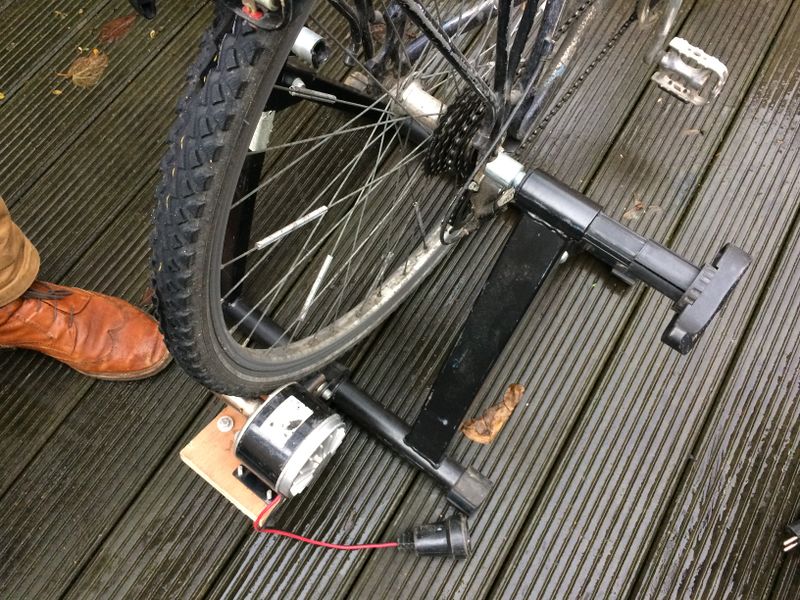
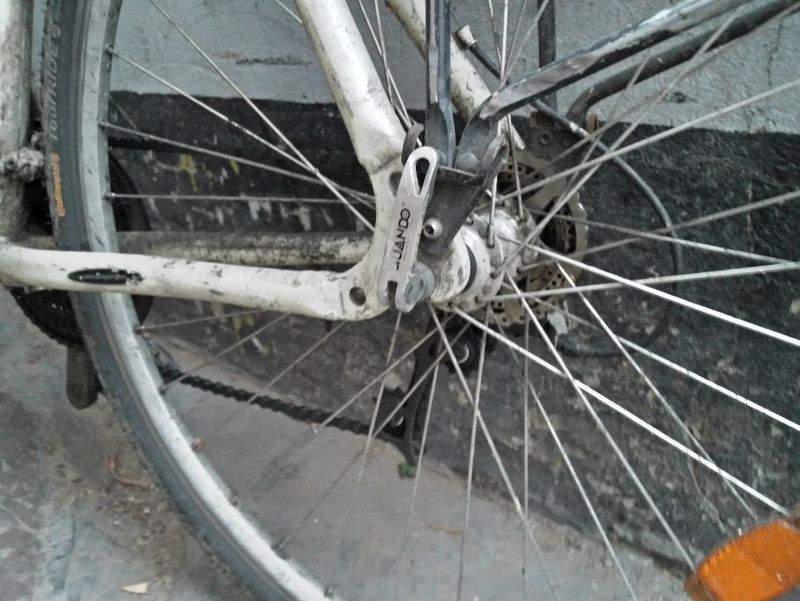
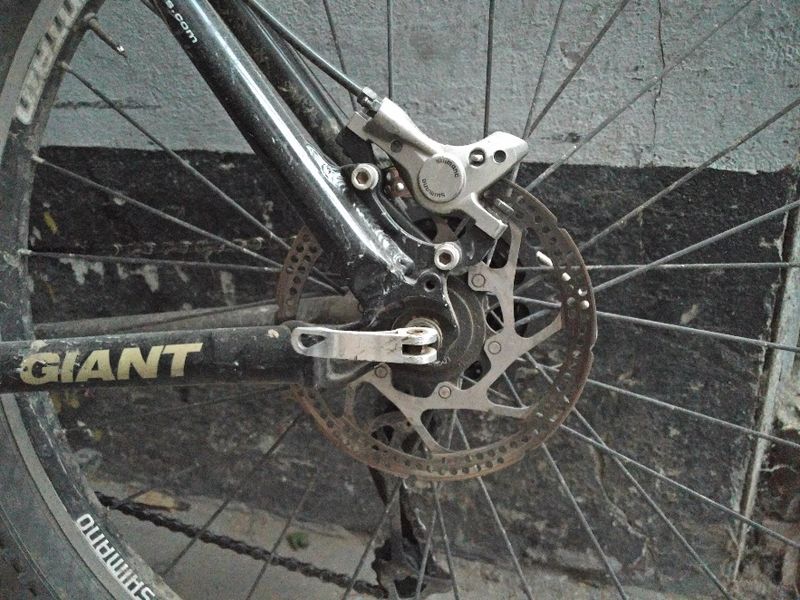
 Français
Français English
English Deutsch
Deutsch Español
Español Italiano
Italiano Português
Português